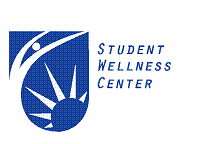
City Tech's Everyday Fitness program is gearing up for a great Fall 09 semester. Classes start September 1st! Stay tuned for class schedules and more details.
Check out this breaking news on new research linking physical activity to better grades:
+++++++++++++++++++++++++++++
New Report from the Health Department and the Department of Education Finds Physical Fitness Is Associated with Higher Academic Achievement among New York City Public School StudentsNearly 40% of New York City students are overweight or obese
July 13, 2009 – Physically fit students tend to outscore their peers who are less-fit on academic tests, according to a new report from New York City’s Health Department and Department of Education (DOE). The observation comes from an analysis of data from NYC FITNESSGRAM, the comprehensive fitness assessment that New York City public school students participate in each year as part of their physical education instruction. The analysis also shows that childhood obesity remains prevalent in New York City – a finding that underscores the urgent need to ensure that school-age children receive nutritious meals, high-quality physical education, and ample opportunities for physical activity.
New Report from the Health Department and the Department of Education Finds Physical Fitness Is Associated with Higher Academic Achievement among New York City Public School StudentsNearly 40% of New York City students are overweight or obese
July 13, 2009 – Physically fit students tend to outscore their peers who are less-fit on academic tests, according to a new report from New York City’s Health Department and Department of Education (DOE). The observation comes from an analysis of data from NYC FITNESSGRAM, the comprehensive fitness assessment that New York City public school students participate in each year as part of their physical education instruction. The analysis also shows that childhood obesity remains prevalent in New York City – a finding that underscores the urgent need to ensure that school-age children receive nutritious meals, high-quality physical education, and ample opportunities for physical activity.
Fitness has been proven to promote a longer, healthier life. Although these new findings do not demonstrate a direct cause-and-effect relationship, they do show a strong association between fitness and academic success. During the 2007-2008 school year, students who scored in the top 5% on their NYC FITNESSGRAM assessments outscored the bottom 5% by an average of 36 percentile points on standardized academic tests.
The new report also examines childhood obesity in New York City. The findings suggest that 21% of kindergarten through eighth grade students are obese, and an additional 18% of the City’s students are overweight.
The full report is available at www.nyc.gov/html/doh/downloads/pdf/survey/survey-2009fitnessgram.pdf.
“The clear associations between fitness and academic achievement highlighted in the report underline the importance of educating the whole child,” said Santiago Taveras, Deputy Chancellor I.A. of the DOE’s Office of Teaching and Learning.
“Under Mayor Bloomberg, the Health Department and the Department of Education have formed a unique partnership to address critical issues in the areas of public health and public education,” said Dr. Roger Platt, director of the Office of School Health, which is jointly run by the two agencies. “This dual-agency collaboration is a model for how a comprehensive approach to student wellness can help support both student health and academic achievement.”
“Our students need high-quality fitness and health education in order to succeed in school and in life,” said Lori Rose Benson, director of Department of Education’s Office of Fitness and Health Education. “The results of this study reinforce the importance of the work that teachers and administrators throughout the city do on a daily basis to provide all children with the opportunities and knowledge to improve their health and fitness.”
NYC FITNESSGRAM is the citywide fitness assessment that is part of physical education. It measures aerobic capacity, muscular strength and endurance, flexibility, and body composition. Students and parents receive annual individual reports that explain the significance of each measure and provide suggestions to help students reach and maintain lifelong health-related fitness.
